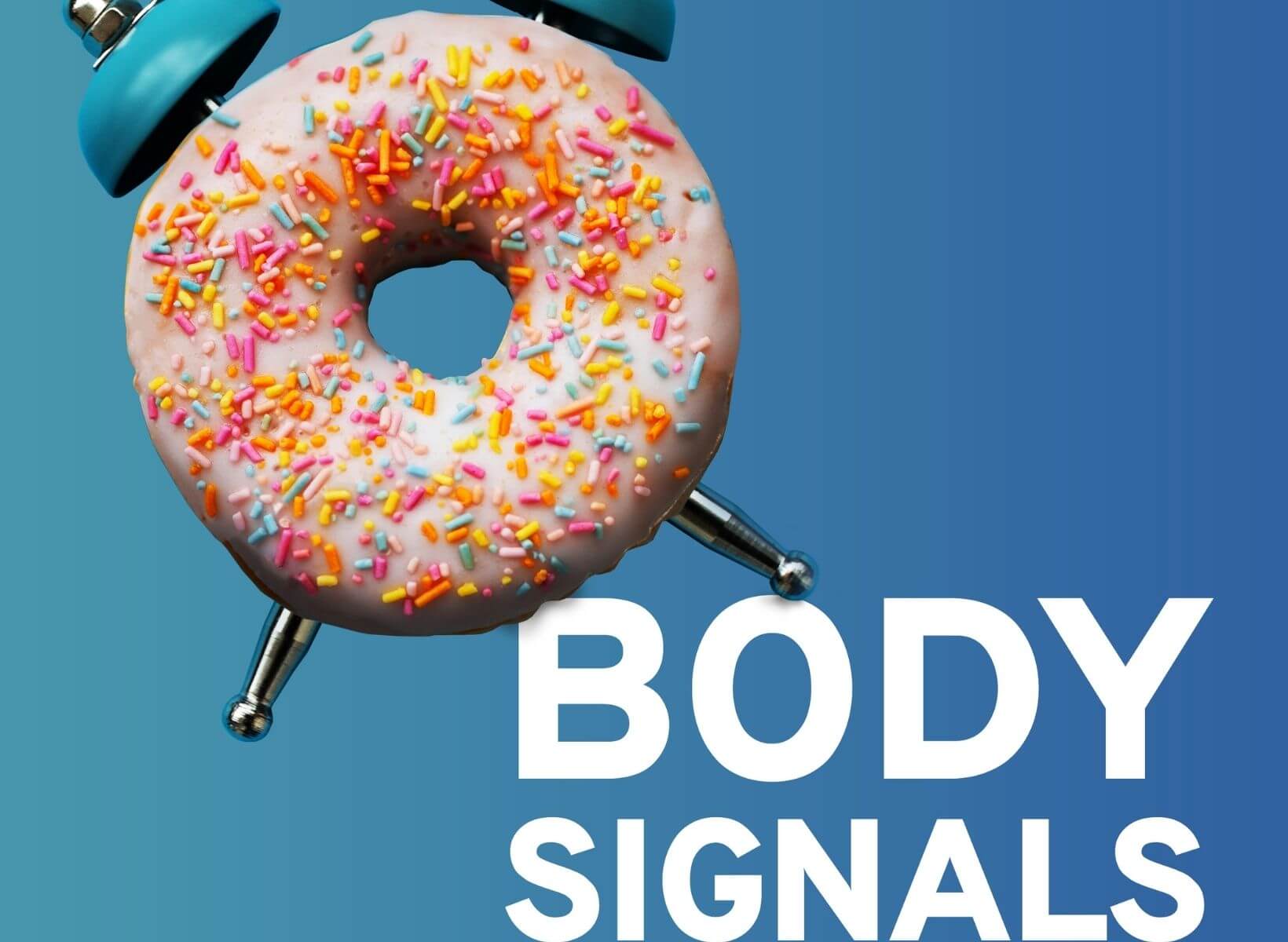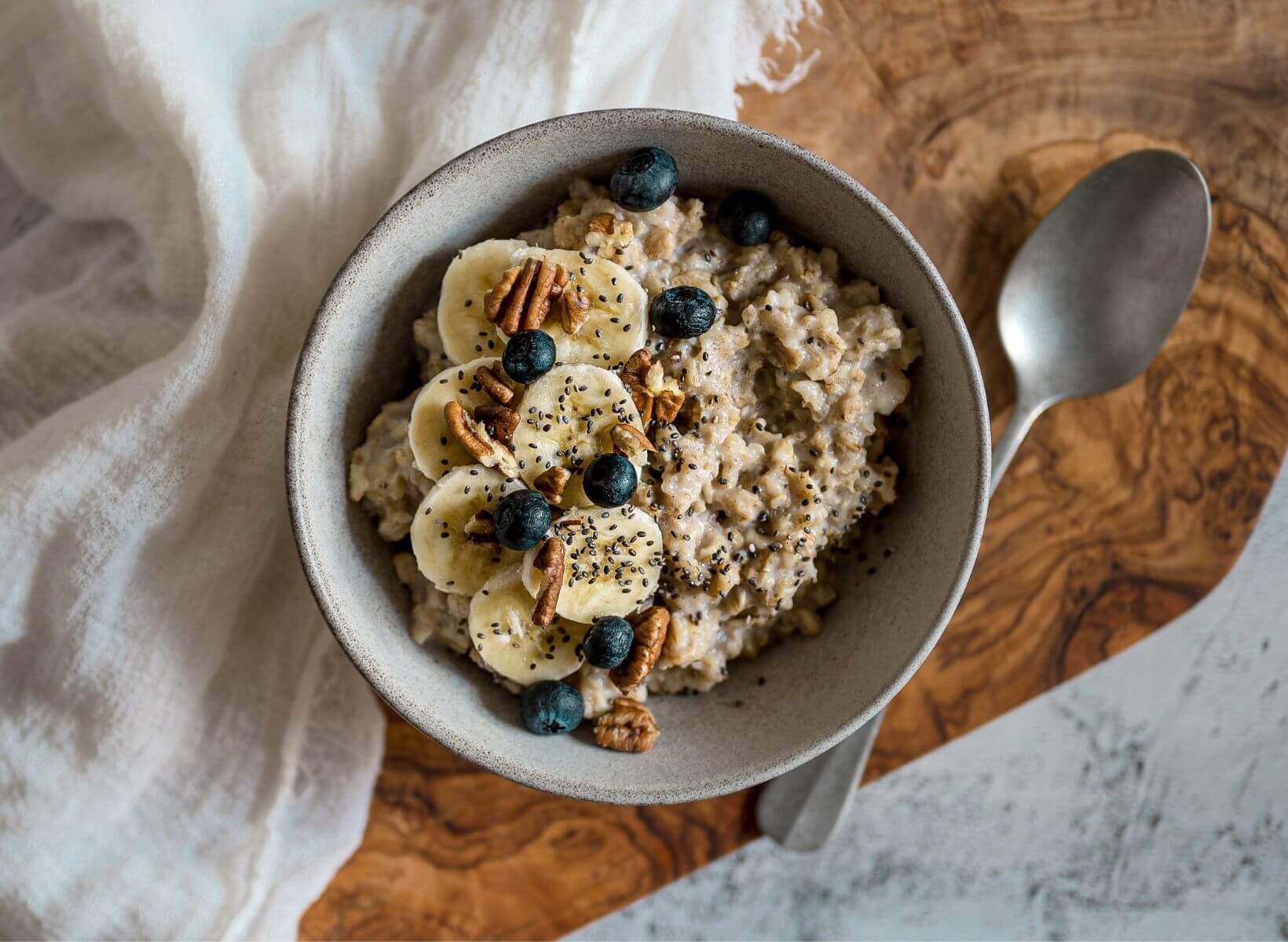Creatine has become a trendy supplement for its many benefits in strength building, performance, recovery, and more. It is an amino acid naturally produced in our kidneys and liver, with about 95 percent stored in our muscle tissue. Recent conversations about creatine supplementation are finding that it may help to reduce fat mass and enhance weight loss. This article discusses the types of creatine, how it works, why it might benefit weight loss and other health conditions, and how much to take to achieve these goals.
What is Creatine and How Does It Work?
Creatine is endogenously made from the amino acids arginine, glycine, and methionine in our kidneys and liver. Amino acids make up proteins and are essential for creating many tissues throughout our bodies. We can obtain creatine from food sources, such as meats and seafood (i.e., beef, pork, salmon, tuna, and herring), and through supplementation.
Creatine becomes important during the process of creating energy using the phosphocreatine system. The phosphocreatine system is the quickest way for our bodies to produce energy, especially during short bouts (less than 10 seconds) of high-intensity activity such as sprinting and heavy weight lifting. In this process, the creatine in our muscles binds with phosphate molecules and becomes “phosphocreatine.” Phosphocreatine is then used to help convert ADP into ATP because ATP is the optimal form of energy used by the human body. No oxygen is required for this to occur, so it is considered a process that happens during anaerobic activities.
The International Society of Sports Nutrition (ISSN) recommends the consuming 3g of creatine daily to sustain healthy living and healthy movement throughout your lifetime. About one-half of this recommendation is consumed through food choices (i.e., one pound of beef contains 1-2g of creatine), while the remaining amount is created in the kidneys and liver, so additional supplementation is normally not needed to sustainable, healthy living.2
However, natural consumption and production are reduced for those who follow a vegan or vegetarian diet or those who do not eat enough protein overall, and supplementation may be beneficial for these individuals. Also, if you have more specific goals related to sports performance, muscle gain, and body recomposition, you may decide to supplement with creatine.
<p class="pro-tip"><strong>Learn more: </strong> <a href="/blog/turmeric-for-weight-loss">Does Turmeric Really Aid Weight Loss? Tips to Use Plus Benefits</a>.</p>
Types of Creatine
There are a few different types of creatine that you should be aware of when looking for a good supplement. They include:
- Creatine Monohydrate: This is the most common form of creatine found in supplements in 3 to 5g dosages and is simply creatine combined with a water molecule. It is also the variety most often used in scientific research studies and has been found to increase muscle creatine stores by 15 to 40 percent3.
- Micronized Creatine: This variety is created when regular creatine is broken up into smaller particles, allowing it to be more easily absorbed. Most supplements recommend taking 5g about three to five times daily for best results.
- Creatine Ethyl Ester: Combine creatine monohydrate with an ester molecule, and you have creatine ethyl ester. The process of esterification is done to increase the absorption effects and allow for more levels of creatine in your muscles without the side effects of bloating and dehydration. Because it is better absorbed, the dosages tend to be lower (about 3 to 6g/day).
Health Benefits of Creatine
Supplementing with creatine has many benefits regarding body composition, athletic performance, brain health, weight loss, and more. Here is a detailed description highlighting some of the benefits of creatine.
Promotes brain health
Creatine supplementation has been found to improve energy substrates to the brain for improved health for those dealing with neurologic disorders, schizophrenia, depression, and other brain disorders4.
Provides more energy
Increased levels of creatine allow for more energy to be created using the phosphocreatine system, which is especially important during high-intensity workouts and athletic performance.
Increases lean muscle mass
When combined with regular resistance training, creatine supplementation may help with increasing lean muscle mass even in the older adult population. This may be due to experiencing more energy to lift heavier weights and the increased metabolism of fat cells.5
Enhances muscle growth
A recent randomized control trial in 2022 found that creatine supplementation with a variety of dosages was found to enhance muscle size in young, healthy individuals when combined with appropriate strength training protocols.6
May improve injury rehabilitation and prevention
Many studies are finding promising results for using creatine supplementation during injury rehabilitation as patients gain more strength and muscle girth during rehabilitation programs.5,6
Improves exercise performance
Many research studies have found that creatine supplementation before, after, or even during a workout increases performance strength, power, and running speed by up to 15 percent.3

Reduces the incidence of cramping
A study on football players found that daily supplementation with creatine significantly lowered the incidence of muscle cramping during activity.7
5 Clinical Uses of Creatine
In addition to the many benefits for athletic performance and improving body composition, medical professionals also use creatine supplementation to address various health conditions. The clinical benefits of creatine include:
May reduce fat accumulation in the liver
By helping to reduce triglycerides and aiding in the oxidation of fatty acids, researchers are finding creatine supplementation to help reduce fatty liver disease.8
May serve as an antioxidant
Creatine has been shown to help reduce oxidative stress over time when combined with an appropriate exercise program.9
May enhance glycemic control
Creatine supplementation has been found to aid in glucose metabolism, which may enhance glycemic control when combined with exercise.10
May minimize bone loss
A study done on post-menopausal women found that regular creatine supplementation combined with resistance training attenuated the loss of bone mineral density and even promoted bone strength after 12 months.11
May improve functional capacity in patients with fibromyalgia
Creatine supplementation has been found in research studies to improve muscle function in patients with fibromyalgia and other forms of chronic pain.12
{{mid-cta}}
Is Creatine Good For Weight Loss?
Many people assume that creatine has become a “weight-loss supplement;” however, creatine alone has not been found to lead to weight loss without combining it with regular exercise, resistance training, and proper dosages. Creatine helps with weight loss by improving energy and performance in the gym and allowing you to exercise for longer periods at a high intensity. It also helps improve muscle recovery so you don’t miss a workout due to excessive soreness or fatigue. In addition, most individuals hope to reduce our fat mass and improve overall body composition in our goals to lose weight. Many research studies have shown that adding a creatine supplement to resistance-based or anaerobic-type workouts helps reduce fat mass even in individuals over 50 years old.13
What are the Potential Side Effects of Creatine?
Creatine supplementation has some adverse side effects if taken too quickly or if you take too much at a time. Some documented side effects include:
- Bloating due to water retention
- GI distress and discomfort
- Dehydration
Taking the appropriate dose or starting with a “loading” phase can help reduce the incidence of the above side effects. Sticking to 0.3-0.8g/kg body weight daily is effective and safe for most healthy individuals without many side effects. However, some people find that taking the maintenance amount of 3 to 5g/day provides similar benefits without the risk of adverse reactions. Caution should be taken for those with medical conditions, especially kidney disease, and to consult with your medical provider before using a creatine supplement.
How Much Creatine Should You Take?
Finding the right dose of creatine for your body and your goals is important; some individuals require more than others. Those who follow a vegetarian or vegan diet or those with a more muscular, bigger body structure may require more creatine than others. Athletes also may require a dosage on the higher end due to the requirements of their performance, training, and recovery needs.
The general recommendation for creatine supplementation is 3g/day to help maintain healthy levels of creatine in your muscles. But, again, those with bigger body types or those with athletic performance goals may require up to 30g/day to obtain the muscle-building and recovery benefits desired.2
Creatine Supplements: Yes or No?
Creatine supplements look similar to protein supplements in that they typically come in a powder form that you mix with water to ingest before, during, or after exercise. Most supplements contain creatine monohydrate and are safe to use with the recommended dosage. However, remember that the FDA cannot and does not approve any supplements for safety and effectiveness. So, when searching for a high-quality brand, research and ensure it is third-party tested for quality assurance. Common third-party certification programs include USDA organic, Certified Gluten Free, NSF, USP, Non-GMO Project Verified, and Certified Vegan.14
4 Tips to Increase Creatine Levels
If you want to add a creatine supplementation to your daily routine to help increase your creatine levels, here are some easy tips and tricks for helping you get started.
- Eat creatine-rich meats: One pound of beef or salmon contains about 1.4 to 2.3g, while herring contains up to 4.5g in one pound.
- Add in carbohydrates: Including carbohydrates with your creatine supplement has been found to enhance the absorption of creatine in your muscles.2 Consider healthy carbohydrates such as sweet potatoes, brown rice, whole grains, or steel-cut oats.
- Focus on smaller dosages: Starting with smaller daily dosages of creatine can help reduce unwanted side effects while still obtaining all the same benefits.
- Include resistance training: The benefits of creatine have been found in the research to occur most often when combined with resistance training, as this is when your body utilizes the creatine to build muscle mass, reduce fat mass, and enhance performance so you can exercise longer at higher intensities.

FAQs Around Creatine
Here are some additional questions to consider before adding creatine to your supplementation routine.
- Does creatine reduce belly fat?
Creatine supplementation can help reduce belly fat by enhancing fatty acid oxidation and increasing muscle mass. Remember that increased overall muscle mass improves your basal metabolic rate for calorie burning at rest. This is only possible if you combine creatine with regular strength training. - Should I take creatine pre- or post-workout?
Taking it before exercise can help with improved performance, while taking it afterward can help with improved recovery and muscle building. However, recent studies have found that taking a creatine supplement within 30 minutes of a workout was superior to pre-workout regarding body composition and strength.15 - Should you use creatine if you are in a calorie deficit?
Taking a creatine supplement during a calorie deficit is safe and effective for weight loss goals and muscle building. However, if your deficit is too extreme or you go through a “cutting” phase too quickly, this may cause more stress to your body than is good. Remember to prioritize a healthy diet with whole-food sources of carbohydrates, fats, and proteins even when in a calorie deficit, as this will further enhance your creatine absorption.
Learn More About How to Achieve Better Health Through Exercise with Signos’ Expert Advice.
If you have more questions on improving your health, fitness, and nutrition, seek the expert advice of the Signos continuous glucose monitor and Signos team. A continuous glucose monitor (CGM) can give you the insights to make smarter nutrition and exercise choices. The Signos app provides a unique, personalized program to help you lose weight and reach your health goals. Take this quiz to see if Signos is a good fit for you and reach your goals faster than ever before.
<p class="pro-tip"><strong>Keep reading: </strong> <a href="/blog/powder-supplements">How to Choose A Powder Supplement (from an MD)</a>.</p>
- Item 1
- Item 2
- item 3
Topics discussed in this article:
References
- Antonio, J., Candow, D.G., Forbes, S.C. et al. Common questions and misconceptions about creatine supplementation: what does the scientific evidence show?. J Int Soc Sports Nutr 18, 13 (2021). https://doi.org/10.1186/s12970-021-00412-w
- Kreider, R.B., Kalman, D.S., Antonio, J. et al. International Society of Sports Nutrition position stand: safety and efficacy of creatine supplementation in exercise, sport, and medicine. J Int Soc Sports Nutr 14, 18 (2017). https://doi.org/10.1186/s12970-017-0173-z
- Jäger, R., Purpura, M., Shao, A., Inoue, T., & Kreider, R. B. (2011). Analysis of the efficacy, safety, and regulatory status of novel forms of creatine. Amino acids, 40(5), 1369–1383. https://doi.org/10.1007/s00726-011-0874-6
- Lyoo, I. K., Kong, S. W., Sung, S. M., Hirashima, F., Parow, A., Hennen, J., Cohen, B. M., & Renshaw, P. F. (2003). Multinuclear magnetic resonance spectroscopy of high-energy phosphate metabolites in human brain following oral supplementation of creatine-monohydrate. Psychiatry research, 123(2), 87–100. https://doi.org/10.1016/s0925-4927(03)00046-5
- Chilibeck, P. D., Kaviani, M., Candow, D. G., & Zello, G. A. (2017). Effect of creatine supplementation during resistance training on lean tissue mass and muscular strength in older adults: a meta-analysis. Open access journal of sports medicine, 8, 213–226. https://doi.org/10.2147/OAJSM.S123529
- Wu, S. H., Chen, K. L., Hsu, C., Chen, H. C., Chen, J. Y., Yu, S. Y., & Shiu, Y. J. (2022). Creatine Supplementation for Muscle Growth: A Scoping Review of Randomized Clinical Trials from 2012 to 2021. Nutrients, 14(6), 1255. https://doi.org/10.3390/nu14061255
- Greenwood, M., Kreider, R. B., Greenwood, L., & Byars, A. (2003). Cramping and Injury Incidence in Collegiate Football Players Are Reduced by Creatine Supplementation. Journal of athletic training, 38(3), 216–219.
- Deminice, R., de Castro, G.S., Brosnan, M.E. et al. Creatine supplementation as a possible new therapeutic approach for fatty liver disease: early findings. Amino Acids 48, 1983–1991 (2016). https://doi.org/10.1007/s00726-016-2183-6
- Arazi, H., Eghbali, E., & Suzuki, K. (2021). Creatine Supplementation, Physical Exercise and Oxidative Stress Markers: A Review of the Mechanisms and Effectiveness. Nutrients, 13(3), 869. https://doi.org/10.3390/nu13030869
- Pinto, C.L., Botelho, P.B., Pimentel, G.D. et al. Creatine supplementation and glycemic control: a systematic review. Amino Acids 48, 2103–2129 (2016). https://doi.org/10.1007/s00726-016-2277-1
- Chilibeck, PD., Candow, DG., Landeryou, T., Kaviani, M., and Paus-Jenssen, L. (2015). Effects of Creatine and Resistance Training on Bone Health in Postmenopausal Women. Medicine and Science in Sports and Exercise; 47(8): 1587–1595.
- Alves, C.R.R., Santiago, B.M., Lima, F.R., Otaduy, M.C.G., Calich, A.L., Tritto, A.C.C., de Sá Pinto, A.L., Roschel, H., Leite, C.C., Benatti, F.B., Bonfá, E. and Gualano, B. (2013). Creatine Supplementation in Fibromyalgia: A Randomized, Double-Blind, Placebo-Controlled Trial. Arthritis Care & Research, 65: 1449-1459. https://doi.org/10.1002/acr.22020
- Forbes, S. C., Candow, D. G., Krentz, J. R., Roberts, M. D., & Young, K. C. (2019). Changes in Fat Mass Following Creatine Supplementation and Resistance Training in Adults ≥50 Years of Age: A Meta-Analysis. Journal of functional morphology and kinesiology, 4(3), 62. https://doi.org/10.3390/jfmk4030062
- Laura Dan and Dr. Christopher Knee. February 27, 20223. What You Need to Know About Third-party Certification Supplements. Retrieved from: https://fullscript.com/blog/third-party-certifications
- Jose Antonio & Victoria Ciccone (2013) The effects of pre versus post workout supplementation of creatine monohydrate on body composition and strength, Journal of the International Society of Sports Nutrition, 10:1, DOI: 10.1186/1550-2783-10-36































